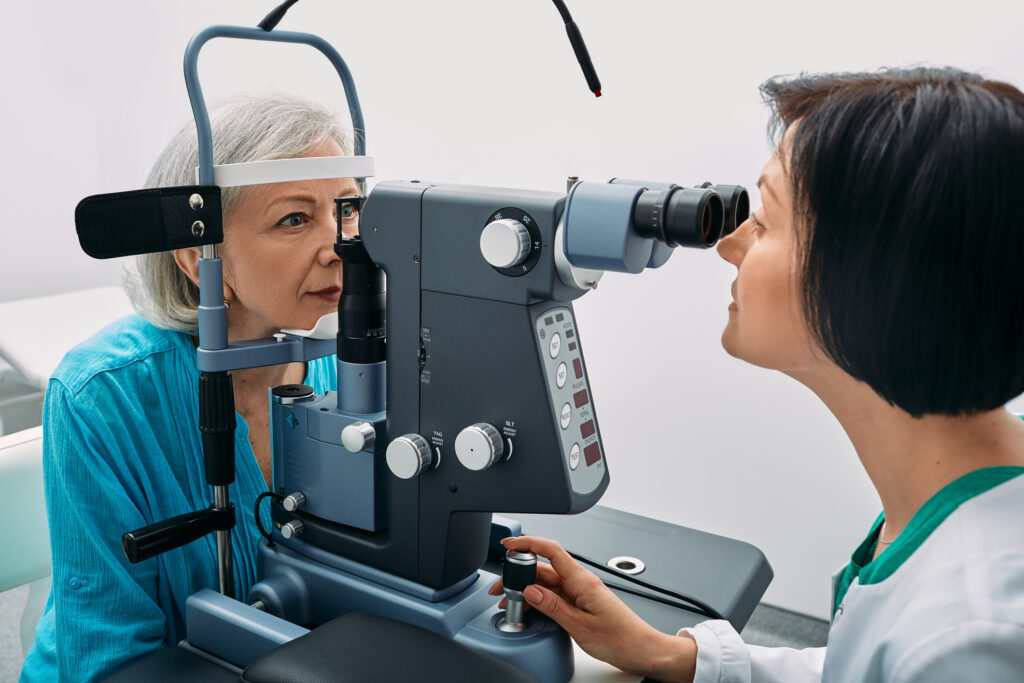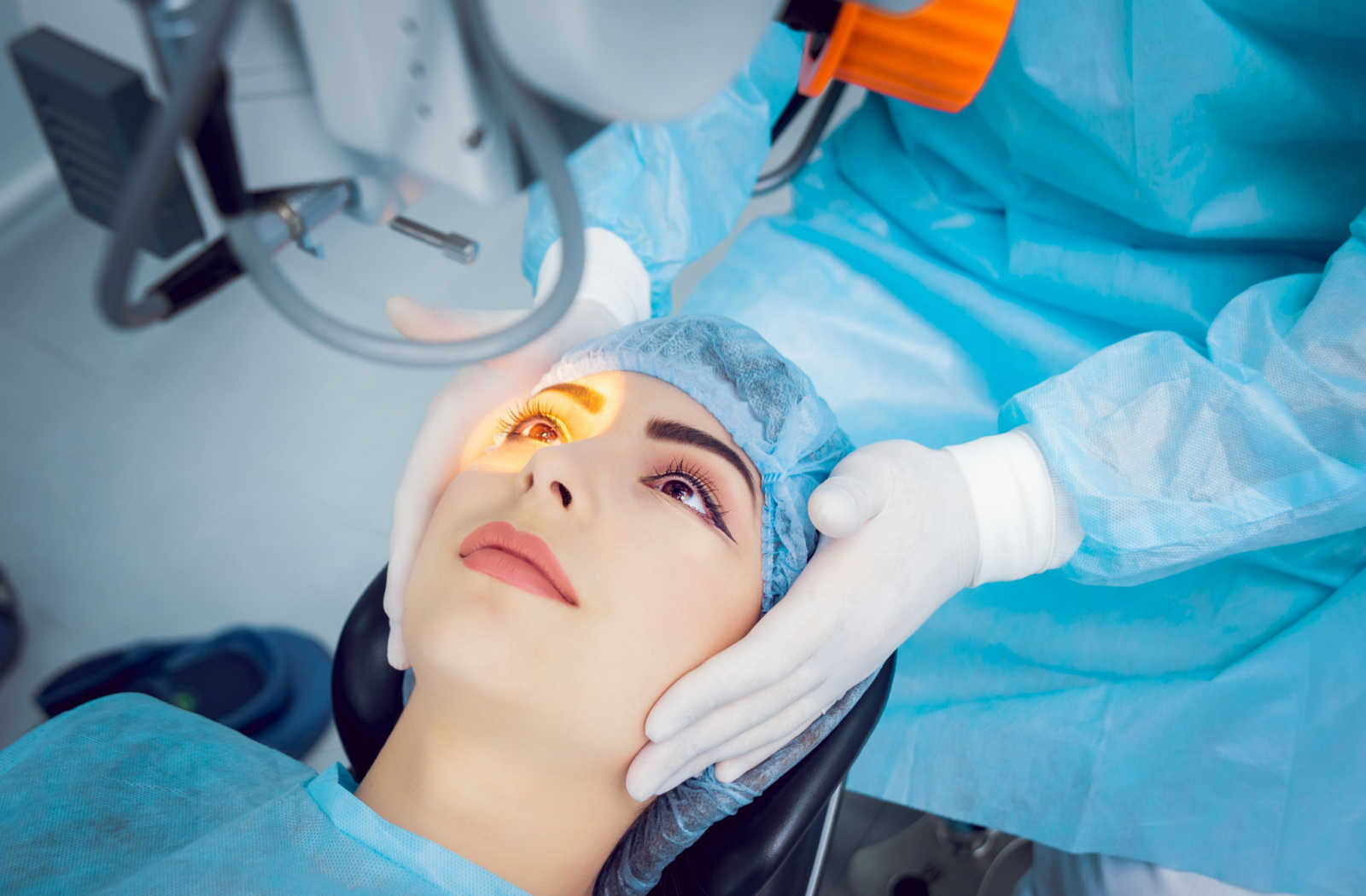Cataract surgery is a procedure that can greatly improve your vision and quality of life. If you are experiencing blurry vision or difficulty seeing clearly, cataract surgery may be the solution you need. In this article, we will explore the different benefits of cataract surgery and debunk common myths associated with the procedure.
Understanding Cataract Surgery
Cataract surgery involves the removal of the cloudy lens in your eye, called a cataract, and replacing it with an artificial lens. This procedure is typically performed by an ophthalmologist and is considered one of the most common and safe surgeries.
What is Cataract Surgery?
Cataracts are a common age-related condition where the natural lens of the eye becomes cloudy, leading to blurred vision and difficulty seeing clearly. Cataract surgery is the most effective treatment for this condition, with a high success rate in improving vision and quality of life for patients.
The Procedure: A Brief Overview
During cataract surgery, you will be given anesthesia to ensure your comfort throughout the procedure. Your surgeon will make a small incision in the eye and use advanced tools to break up and remove the cloudy lens. Once the cataract is removed, an intraocular lens (IOL) is implanted to restore clear vision.
Advancements in cataract surgery techniques, such as phacoemulsification, have made the procedure minimally invasive with faster recovery times. This modern approach allows for smaller incisions and reduces the risk of complications, making cataract surgery a safe and efficient option for patients.
After the surgery, you may experience some minor discomfort, but this is temporary and can be managed with medication prescribed by your doctor.

The Immediate Benefits of Cataract Surgery
Enhanced Visual Clarity
One of the most significant benefits of cataract surgery is the immediate improvement in visual clarity. As the cloudy lens is replaced with a clear artificial lens, your vision will become sharper and brighter. Colors will appear more vibrant, and you will be able to see details that were previously obscured by cataracts.
Improved Color Perception
Cataracts can cause colors to appear dull and faded. After cataract surgery, you will notice a significant improvement in color perception. This can greatly enhance your enjoyment of daily activities such as admiring artwork, appreciating nature, or spending time with loved ones.
Furthermore, following cataract surgery, many patients experience an increased quality of life due to the restoration of their independence. With clearer vision, individuals often find it easier to perform daily tasks such as reading, cooking, and driving. This newfound freedom can lead to a boost in confidence and overall well-being.
Reduced Glare Sensitivity
Another immediate benefit of cataract surgery is the reduction in glare sensitivity. Cataracts can cause light to scatter within the eye, leading to increased sensitivity to glare from sunlight, headlights, or other bright lights. By removing the cloudy lens and replacing it with a clear intraocular lens, patients often find that their sensitivity to glare is significantly diminished, allowing for more comfortable vision in various lighting conditions. Read more about sensitivity at https://pubmed.ncbi.nlm.nih.gov/15837445/
Long-Term Advantages of Cataract Surgery
Reduction in the Risk of Falls and Accidents
Untreated cataracts can significantly increase the risk of falls and accidents. With improved vision after cataract surgery, you will be able to navigate your surroundings more confidently, reducing the chances of tripping or misjudging distances.
Furthermore, cataracts can impair your ability to drive safely. By undergoing cataract surgery, you can regain the visual acuity required to operate a vehicle, ensuring your independence and safety on the road.
Moreover, the impact of untreated cataracts on overall health should not be underestimated. Struggling with compromised vision can lead to a decrease in physical activity and social interactions, potentially affecting mental well-being. By addressing cataracts through surgery, individuals can not only enhance their visual clarity but also promote a more active and engaging lifestyle.
Increased Independence and Quality of Life
Cataracts can hinder your ability to perform daily tasks and enjoy your favorite activities. By opting for cataract surgery, you can regain independence and improve your overall quality of life. Whether it’s reading, pursuing hobbies, or simply enjoying the beauty of the world around you, clear vision will significantly enhance your day-to-day experiences.
Additionally, the emotional toll of living with untreated cataracts can be profound. Struggling with limited vision can lead to feelings of frustration, isolation, and a sense of dependency on others for basic tasks. Cataract surgery not only restores visual clarity but also plays a crucial role in boosting self-esteem, confidence, and overall mental well-being, allowing individuals to lead a more fulfilling and independent life.
Debunking Common Myths About Cataract Surgery
Is Cataract Surgery Painful?
Contrary to popular belief, cataract surgery is not a painful procedure. Anesthesia is used to numb the eye, ensuring that you remain comfortable throughout the surgery. Some patients may experience mild discomfort or itching after the surgery, but this can be managed with prescribed eye drops and over-the-counter pain relievers.
It is important to note that cataract surgery is one of the most commonly performed and successful surgeries worldwide. The procedure is typically quick, lasting only about 15-20 minutes per eye. During the surgery, the cloudy lens is removed and replaced with a clear artificial lens, restoring clear vision. The advancements in technology have made cataract surgery a safe and effective option for improving vision.
The Truth About Recovery Time
Another myth surrounding cataract surgery is that the recovery time is lengthy and restrictive. In reality, most patients experience a relatively quick recovery. You may need to wear an eye patch or shield for a day or two, and it is essential to follow your doctor’s instructions regarding medication and eye care. However, many people can resume their normal activities within a few days after the surgery.
During the recovery period, it is normal to experience some mild side effects such as blurred vision, sensitivity to light, and mild irritation. These symptoms typically improve within a few days as the eye heals. It is crucial to attend follow-up appointments with your eye care provider to monitor your progress and ensure that your eye is healing properly. By following post-operative care instructions diligently, you can help promote a smooth and successful recovery process.
Preparing for Cataract Surgery
What to Expect Before Surgery
Before cataract surgery, your eye doctor will perform a thorough examination to assess the severity of your cataracts and ensure you are a suitable candidate for the procedure. This examination may include various tests such as visual acuity, tonometry to measure eye pressure, and a dilated eye exam to evaluate the condition of your lens and retina. By conducting these tests, your doctor can gather essential information to develop a personalized treatment plan tailored to your specific needs. Click here to learn more about pressure.
During the consultation, your eye doctor will also discuss your medical history and any medications you are taking. It is crucial to provide accurate information about your health and medications, as some medications may need to be adjusted before the surgery. This ensures your safety and helps minimize any potential risks during the procedure.
Additionally, you will be provided with pre-surgical instructions to follow. These instructions may include abstaining from food and drink for a certain period before the surgery to prevent complications during the procedure. Your doctor may also advise you to avoid certain medications, such as blood thinners, to reduce the risk of excessive bleeding. It is important to carefully adhere to these instructions to ensure a safe and successful procedure.

Post-Surgery Care and Tips
After cataract surgery, your eye will need time to heal. Your doctor will provide you with detailed post-operative care instructions to promote a smooth recovery process. These instructions may include using prescribed eye drops to prevent infection and inflammation, avoiding rubbing or touching your eye to prevent any damage to the surgical site, and protecting your eye from dust and dirt by wearing a protective shield or glasses.
It’s important to attend all scheduled follow-up appointments to monitor your recovery and address any concerns you may have. During these appointments, your doctor will assess your progress, check your vision, and ensure that your eye is healing properly. They will also provide guidance on when you can resume normal activities, such as driving or exercising, based on your individual healing process.
By following the pre-surgical and post-surgical instructions provided by your eye doctor, you can contribute to a successful outcome and optimize your visual recovery. Remember, cataract surgery offers numerous benefits for individuals experiencing vision problems due to cataracts. From immediate improvements in visual clarity and color perception to long-term advantages such as increased independence and quality of life, cataract surgery is a life-changing procedure. By dispelling common myths and understanding what to expect before and after the surgery, you can confidently make the decision to improve your vision and enjoy the world around you with renewed clarity.
Other resources: Everything You Need to Know About Cataracts Surgery



